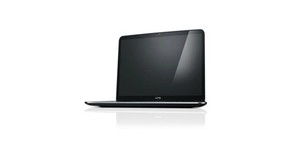
Market watcher Gartner has indicated that the western PC market is showing clear signs of recovery, with shipments of traditional PCs up an impressive nine per cent in Western Europe.
The market for traditional desktops and laptops has been suffering a years-long slump which has caused several big names including IBM, Sony and Samsung to quit the market in whole or part. Recent signs have pointed to slowing losses and even tentative growth, however, with buyers finally deciding that tablets are perhaps not the way forward after all and going back to buying traditional PCs.
According to Gartner's latest global PC shipment analysis, the result is clear to see in the mature western markets: shipments in Western Europe grew 9 per cent year-on-year in the last quarter while those in North America grew 4.2 per cent. Although the overall global market was dragged down by continuing decline elsewhere in the world, a 0.5 per cent decline year-on-year in global PC shipments is certainly less concerning than the company's previous reports.
'Growth in the mature markets was offset by a decline in shipments in emerging markets, similar to what was seen in the second quarter of 2014,' explained Mikako Kitagawa, principal analyst at Gartner, of the report. 'Positive results in Western Europe and North America can be a sign of gradual recovery for the PC industry. Consumers’ attention is slowly going back to PC purchases as tablet adoption peaked with mainstream consumers. The transition from PCs to tablets has faded as tablet penetration has reached the 40-50 per cent range. In contrast, weakness in the emerging market reflects the saturation in selected consumer segments where they can afford PCs. In the meantime, consumers who don’t have PCs will likely buy low priced tablet. This is a one of the major reasons for the slow growth in PC shipments in the emerging market.'
It's worth noting here that Gartners figures do include a sub-set of the tablet market: its definition of 'PC' includes desktop and laptop machines along with x86-architecture tablets running Microsoft's full-fat Windows releases, but not ARM-based tablets or - for some reason - Google's Chromebooks.
With that in mind, Lenovo continues to lead the global tables with a massive 19.8 per cent market share thanks to 11.4 per cent growth year-on-year. The company is being chased by the soon-to-split HP at 17.9 per cent, a 4.4 per cent growth, and Dell at 12.8 per cent, a 9.7 per cent growth that will surely please the newly-private company and its investors. The story in Europe, the Middle East and Africa is somewhat different: HP leads with a 20.9 per cent share, closely followed by Lenovo at 19.3 - a massive 45 per cent growth year-on-year - with Acer and Asus bringing up the rear at 13.2 and 10.4 per cent respectively. Dell, meanwhile, has just 8.2 per cent of the EMEA market.
More details from the report can be found in Gartner's official press release.
The market for traditional desktops and laptops has been suffering a years-long slump which has caused several big names including IBM, Sony and Samsung to quit the market in whole or part. Recent signs have pointed to slowing losses and even tentative growth, however, with buyers finally deciding that tablets are perhaps not the way forward after all and going back to buying traditional PCs.
According to Gartner's latest global PC shipment analysis, the result is clear to see in the mature western markets: shipments in Western Europe grew 9 per cent year-on-year in the last quarter while those in North America grew 4.2 per cent. Although the overall global market was dragged down by continuing decline elsewhere in the world, a 0.5 per cent decline year-on-year in global PC shipments is certainly less concerning than the company's previous reports.
'Growth in the mature markets was offset by a decline in shipments in emerging markets, similar to what was seen in the second quarter of 2014,' explained Mikako Kitagawa, principal analyst at Gartner, of the report. 'Positive results in Western Europe and North America can be a sign of gradual recovery for the PC industry. Consumers’ attention is slowly going back to PC purchases as tablet adoption peaked with mainstream consumers. The transition from PCs to tablets has faded as tablet penetration has reached the 40-50 per cent range. In contrast, weakness in the emerging market reflects the saturation in selected consumer segments where they can afford PCs. In the meantime, consumers who don’t have PCs will likely buy low priced tablet. This is a one of the major reasons for the slow growth in PC shipments in the emerging market.'
It's worth noting here that Gartners figures do include a sub-set of the tablet market: its definition of 'PC' includes desktop and laptop machines along with x86-architecture tablets running Microsoft's full-fat Windows releases, but not ARM-based tablets or - for some reason - Google's Chromebooks.
With that in mind, Lenovo continues to lead the global tables with a massive 19.8 per cent market share thanks to 11.4 per cent growth year-on-year. The company is being chased by the soon-to-split HP at 17.9 per cent, a 4.4 per cent growth, and Dell at 12.8 per cent, a 9.7 per cent growth that will surely please the newly-private company and its investors. The story in Europe, the Middle East and Africa is somewhat different: HP leads with a 20.9 per cent share, closely followed by Lenovo at 19.3 - a massive 45 per cent growth year-on-year - with Acer and Asus bringing up the rear at 13.2 and 10.4 per cent respectively. Dell, meanwhile, has just 8.2 per cent of the EMEA market.
More details from the report can be found in Gartner's official press release.

MSI MPG Velox 100R Chassis Review
October 14 2021 | 15:04








Want to comment? Please log in.